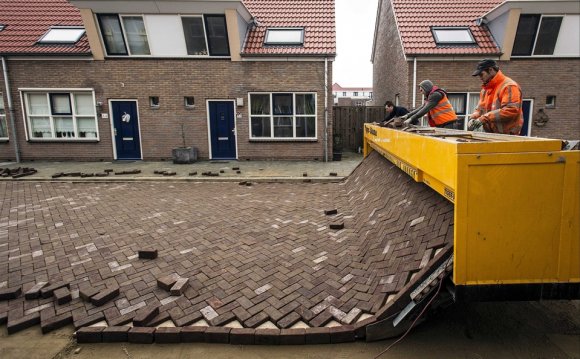
Setting up paving bricks is back-breaking, time-consuming work... or at least, its should you it the normal method. Henk van Kuijk, director of Dutch industrial business Vanku, obviously decided that squatting/kneeling and pushing the bricks into put on the bottom was a little too slow, so he created the Tiger Stone paving machine. The road-wide device is given free bricks, and lays them out onto the road because gradually moves along. An instant going-over with a tamper, while’ve got an instantaneous brick roadway.
Someone to three peoples providers get up on the platform associated with Tiger rock, and go free bricks manually from the hopper to its sloping “pusher” slot – the bricks do have to be provided into the pusher when you look at the desired completed design. From there, gravity causes them to slip together, in one single road-wide sheet, down onto the sand.
The tread-tracked machine is electrically-powered, and it has couple of moving components, so sound and upkeep tend to be held to at least. It remains on course because of integral detectors, which proceed with the curbs. Relating to Vanku, a machine with two providers can pave about 300 square yards (3, 229 sq.ft.) of roadway each day, whereas one old-fashioned paver to their fingers and knees manages between 75 and 100.
The Tiger rock will come in four, five and six-meter (13, 16 and 20-foot) widths, and costs from €60, 000 to €80, 000 (US$81, 485 to $108, 655). There’s no doubt that a lot of home-owners wish to see a much smaller version, which they could rent for creating garden routes and patios.
See gallery - 6 images








